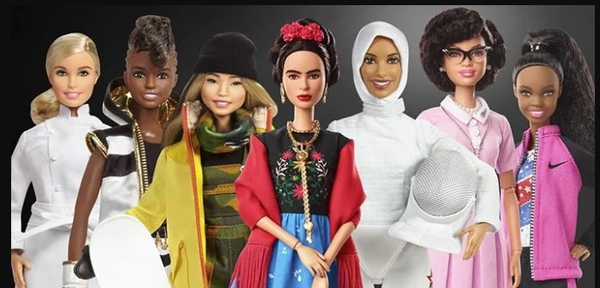Not too long ago, a children’s toy made headlines: the launch of a Barbie doll in a wheelchair was welcomed by people all over the world. This was seen as a significant step towards removing the stigma and the silence that surrounds disability. We now have a variety of new and diverse Barbie dolls to choose from. Here is why they reflect some welcome changes in society at large.
Mattel’s 2020 Fashionistas Line introduces new Barbie dolls of various colours and shapes. There is a Ken doll with long hair, a Barbie with no hair, one with vitiligo, another with a prosthetic limb. The dolls represent various ethnicities and body types to be ‘more reflective of the world girls see around them’. This is supposed to continue Barbie’s journey to ‘represent global diversity and inclusivity’.
This move by Mattel has been welcomed by individuals as well as publications and organisations. It is seen as a move that supports cultural diversity. Diverse dolls such as these are seen as having the potential to make marginalised or picked-upon kids feel happier. To be sure, a child in a wheelchair would feel less of an anomaly when there is a toy in a wheelchair; a child with vitiligo may feel less self-conscious about their condition if a friend has a doll with visible vitiligo.
Mattel presents their new line of Barbie dolls as reflecting a “multi-dimensional view of fashion”. So Barbie is still very much about fashion and clothes and being the popular girl. And yes, it is still very much the ‘girl’ that the dolls are marketed to. Make no mistake, this move makes sound business sense for the company – there are now more people who will willingly buy Barbie dolls for their little girls; if only to make them feel more accepted and included.
A parent fundamentally against the idea of the thin, white, blonde ideal of ‘beauty’ (like me), may become more favourably inclined towards Barbie dolls in general. And those parents may also be more inclined to buy the dresses and the accessories and all the other useless over-priced paraphernalia to support Barbie’s lifestyle as a fun, popular fashionista. For instance, Barbie in a wheelchair comes along with her own personalised ramp. This draws attention to the need for making public spaces accessible for people with mobility issues. But it also sells yet another, essentially useless product.
So yes, it does all boil down to the profit motive. However, Mattel’s changing product line does also reflect a welcome change in societal values, a willingness to be more inclusive along with a broader acceptance of diversity.

changing values
We have come a long way since the times when disability or disease were seen as punishment for past sins; as something to be ashamed of, something to hide away. We have come a long way since people with different clothes and hair were seen as freaks to be ridiculed. This is because we, as a society, are now seeing people with impairments or those who choose different lifestyles as acceptable; as part of the ‘mainstream’.
People with different orientations and lifestyles are no longer seen through a narrow prism, or as being deviant in some way. Nor are people with disabilities seen by their families as a burden or as people to be pitied. These are all just people – like all other people with their own abilities and individual quirks.
As a society, we are redefining ‘normal’ and ‘abnormal’. So-called ‘normal’ people are now having to accept that people being different than them doesn’t give them the right to apply derogatory labels or to exclude people from the rights and privileges that they themselves enjoy.
Barbie is still all about shallow things like fashion and makeup and the accent is still on making the effort to look good, cook and do household chores. Barbie doesn’t seem ready to market itself as a gender-neutral toy that little boys would also be happy to be seen playing with. Yet Barbie is changing --- welcome, baby steps that reflect welcome, baby steps society itself is taking.
Do you have something interesting you would like to share? Write to us at [email protected]